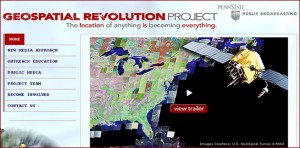Robert David Steele
Recovering spy, serial pioneer for open and public intelligence
It's Official — Steele Won Virtual Presidency
I held a bi-partisan vote today, with me representing the Democratic Party while I represented the Republican Party. Strict ballot access controls ensured a unanimous outcome — the new Virtual President of the United States of America is Robert David Steele, or for Latinos, Roberto David de Steele y Vivas.
Over the next 45 days, on Tuesdays and Thursdays I will announce one critical policy decision, always in the context of a balanced budget and always with the public interest in mind — this is not going to be pretty, but 45 days from today, every American will be able to compare my virtual track record with the actual track record of those seeking re-election, or in the case of a tiny handful that overcame enormous obstacles, those seeking election for the first time.
Thursday: Virtual Sunshine Cabinet Named
Phi Beta Iota: Steele's posts will be buried among 5,999 other bloggers posting twice weekly. The search bar at Huffington Post works well. You can also, if you wish, click on the fan logo at this first point, to automatically receive an email alert with the exact URL for each additional post as it appears.





